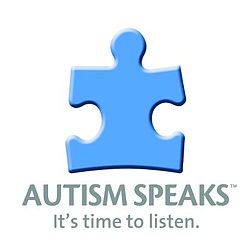Autistic Americans and individuals with other disabilities are no more likely to commit violent crime than non-disabled people. In fact, people with disabilities of all kinds, including autism, are vastly more likely to be the victims of violent crime than the perpetrators.
Should the shooter in today’s shooting prove to in fact be diagnosed on the autism spectrum or with another disability, the millions of Americans with disabilities should be no more implicated in his actions than the non-disabled population is responsible for those of non-disabled shooters.
Today’s violence was the act of an individual. We urge media, government and community leaders to speak out against any effort to spuriously link the Autistic or broader disability community with violent crime. Autistic Americans and other groups of people with disabilities persist in facing discrimination and segregation in school, the workplace and the general community. In this terrible time, our society should not further stigmatize our community. As our great nation has so many times in the past, let us come together to both mourn those killed by acts of heinous murder and defend all parts of our country from the scourge of stigma and prejudice.
These were words said by the Autistic Self-Advocacy Network on a day in which innocent children, who will never be able to live life, as well as faculty members lost their lives in a senseless act of violence. It was said that the shooter was diagnosed with Asperger’s Syndrome, a form of autism that affects individuals in a social enviroment. As we now know, through the DSM-5, AS is no longer recognized as its own disorder. When I first heard of this unspeakable tragedy, I was stunned that someone could actually go into a peaceful school and shoot innocent children, whose only crime was just that:
being innocent children. As an autistic individual and self-advocate, I strive for full inclusion and acceptance, some of my missing pieces in my life, if not, in our community. However, before I was diagnosed autistic, I was born and still am a human being. That is why I mourn for the people of Newtown and for the people at Sandy Hook Elementary.
The last thing that our community needs is another label: killer. I, for one, will never be someone that will take the life of another human being. One person’s act of violence does not speak for who we really are: human beings with good hearts. I know someone like that very well. I am one of them.
What’s your missing piece?
Don S. Washington
Founder, Missing Pieces Project







